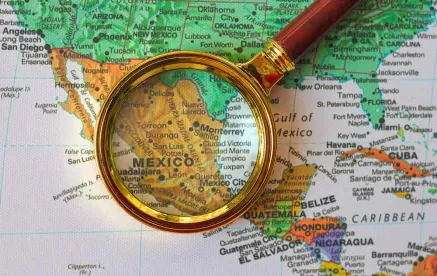There is new legislation pending in Mexico for the protection of the cultural heritage of indigenous and people of African descent.
On June 8, 2021, the Mexican Federal Congress returned the Reform Bill with changes being presented in the first instance by the Mexican Senate Culture Commission, which was sent to the United Commissions of Culture; Indigenous Affairs; and Legislative Studies, Second of the Senate for its corresponding ruling.
In general terms, the Congressional legislators respected the initiative that was sent by the Senate, ensuring that the initiative was reviewed and analyzed in conjunction with the Legal Department of the Ministry of Culture, applying certain changes that they considered necessary:
-
The recognition of the right to property of the peoples, indigenous and Afro-Mexican communities over the elements that make up their cultural heritage, which is their knowledge and expressions, for which the definition of cultural heritage is included, which is not defined in the Constitution. For its part, the definition of Cultural Heritage is found in the Convention on the Protection of World Cultural and Natural Heritage, which was adopted by the General Conference of the United Nations Educational, Scientific and Cultural Organization (UNESCO) on November 16, 1972, whose objective was to promote the identification, protection, and preservation of cultural and natural heritage, considered especially valuable for humanity. Intangible cultural heritage is defined as the uses, representations, expressions, knowledge, and techniques; together with the instruments, objects, artifacts, and cultural spaces that are inherent to them; recognized by communities, groups, and, in some cases, individuals as an integral part of their cultural heritage. This intangible cultural heritage, which is transmitted from generation to generation, is constantly recreated by communities and groups based on their environment, their interaction with nature, and their history, infusing them with a feeling of identity and continuity, helping to promote respect for cultural diversity and human creativity. The foregoing, as commented by the legislators of the Congress, is an attempt to harmonize national legislation with international legal instruments on the matter, trying to give a seal of “inclusivity” to minorities, demonstrating the recognition and respect deserved by indigenous and Afro-Mexican peoples and communities in Mexico.
-
Collective intellectual property is mentioned in the reform bill as a way of identifying indigenous and Afro-Mexican peoples and communities, as owners of said cultural heritage, based and motivated by the terms of articles 1, 2, 40, twelfth paragraph, and 73, section XXV, of the Mexican Constitution and international instruments on the matter. The Constitution mentions, among other things, the indigenous peoples, the forms and modalities of their ownership and possession of that ownership. The reform bill tries to erroneously equate the same language when commenting that it recognizes and guarantees the Property rights of indigenous and Afro-Mexican peoples and communities over the elements that make up their cultural heritage, their knowledge, and expressions. An attempt is made to determine that they are the owners of what is considered cultural heritage in the reform bill, considering that, in this case, the correct legal way is to establish “the rights-holding” that indigenous and Afro-Mexican peoples, communities have over the elements that make up their cultural heritage, their knowledge, and expressions.
-
Similarly, Congressional legislators determined that, not only should the issue of native peoples be addressed, but that it was necessary to add Afro-Mexicans.
The original opinion was adapted to the aforementioned changes, including the following:
-
It is a law of public order, social interest, and general observance in the national territory and that it aims to recognize and guarantee the protection, safeguarding, and development of the cultural heritage and collective intellectual property of indigenous peoples and communities.
-
Establishes provisions so that, in the exercise of their self-determination and autonomy, indigenous peoples and communities define, preserve, protect, control, and develop the elements of their traditional knowledge and cultural expressions;
-
Establishes the bases for indigenous peoples and communities to define the use, enjoyment, and exploitation of their traditional knowledge and cultural expressions; and, where appropriate, its use by third parties;
-
Constitutes the System for the Protection of the traditional knowledge and cultural expressions of Indigenous Peoples and Communities as a mechanism for inter-institutional coordination of the federal government, together with indigenous peoples and communities, and
-
Establishes the sanctions for the misappropriation and use, exploitation, commercialization, or reproduction, of the traditional knowledge and cultural expressions of indigenous peoples and communities, as appropriate, when there is no free, prior, and informed consent of said peoples and communities or when they are violated. In all the above cases, the draft legislation established that any act that threatens or affects the integrity of the traditional knowledge and cultural expressions of indigenous peoples and communities is prohibited, where compliance with the object and purposes of the Law is thanks to the recognition of the peoples and indigenous and Afro-Mexican communities as subjects of public law, in the terms established in the national and international legislation on the matter. In the actions of protection, safeguarding, and development that applies to federal public institutions, as well as of other federal entities, municipalities, and the territorial demarcations of Mexico City, when it corresponds, they will recognize, respect, and guarantee the following principles: Bioculturality; Commonality; Fair and equitable distribution of benefits; Gender equality; Equality of cultures and non-discrimination; Free determination and autonomy of indigenous and Afro-Mexican peoples and communities; Free expression of ideas and manifestations of culture and identity; Legal pluralism; Pluriculturalism and interculturality, and Respect for cultural diversity.
-
The law recognizes the authorities and representative institutions of indigenous and Afro-Mexican peoples and communities, elected, or appointed in accordance with their regulatory systems.
-
The cultural heritage of indigenous and Afro-Mexican peoples and communities will be understood as reserved by the corresponding people or community, and its use and exploitation will be prohibited unless they grant their free, prior, and informed consent, in accordance with the General Consultation Law of Indigenous and Afro-Mexican Peoples and Communities.
-
For the Law in mention, traditions, customs, and spiritual and religious ceremonies, sacred places and ceremonial centers, objects of worship, symbolic systems, or any other that is considered sensitive for the communities will have special protection, to guarantee their own ways of life and identity, as well as its cultural survival.
-
The acts, contracts, or agreements entered into by any member of a community who, individually, have subscribed or agreed with third parties, resulting in the use, exploitation, or commercialization of the elements of the cultural heritage of the peoples, indigenous and Afro-Mexican communities, will be null and void.
-
In the interpretation of the Law and resolutions, the indigenous normative systems and international instruments signed by the Mexican State on human rights, indigenous rights, and, as the case may be, copyright and intellectual property will be taken into account, seeking the broader protection of indigenous and Afro-Mexican peoples and communities.
-
That, in all cases, a contextual analysis should be carried out, with an intercultural perspective, full respect for self-determination, and maximization of the autonomy of indigenous and Afro-Mexican peoples and communities. The principles of progress, pro-person, equality, and non-discrimination, among others, will be guaranteed within the framework of legal pluralism.
-
In the absence of an express provision, the provisions of the Mexican Constitution and the respective international instruments will be followed. Likewise, the Federal Civil Code, the Commerce Code, the Federal Code of Civil Procedures, the Federal Law of Administrative Procedure, the General Law of Culture and Cultural Rights, the Federal Copyright Law, and the Federal Law for Protection of Industrial Property will be applied in a supplementary manner.
-
The matters regarding monuments and areas of archaeological, artistic, and historical monuments will be regulated by the Federal Law on Monuments and Archaeological, Artistic and Historical Zones, always respecting the rights of indigenous and Afro-Mexican peoples and communities.
For their part, the Instances of the Protection System that comprise the Law will lead to the integration of the Inter-secretarial Commission; its powers; the times of the meetings being at least once a year, and the mechanism to convene, as well as its president and their obligations.
The chapter referring to the National Registry of the Cultural Heritage of indigenous and Afro-Mexican peoples and communities includes the registry details, the national catalog of indigenous peoples and communities, as well as the integration of the registry.
Regarding the resolution of controversies, mediation, complaint, or denunciation are contemplated when the non-consensual use of the elements of cultural heritage, their procedures, and their definitions is identified.
In addition to this, the transitory articles establish that the entry into force of the Law will be the day following its publication in the Official Gazette; that the expenditures that are generated due to the entry into force of the law will correspond to the competent agencies and entities and will be made out of their approved budget for the corresponding fiscal year; that the Regulations of the Law will be published by the corresponding authority within a period of 180 calendar days; that the Statute of the System for the Protection of Cultural Heritage and Identity of Indigenous and Afro-Mexican Peoples and Communities will be issued by the head of the Ministry of Culture in his capacity as head of the Executive Secretary of the Inter-ministerial Commission of the Protection System, once approved by the institutions that make up the Commission, within a period that will not exceed 180 calendar days. The President of Mexico will order that the entire text of the normative body of this Decree be translated into the languages of the indigenous peoples of the country and order its dissemination in their communities.
Finally, as a law firm we consider that it is advisable to change the term “owners” of cultural heritage, since in harmony with what is contemplated in the legislation of the Federal Copyright Law and the Federal Law for the Protection of Industrial Property, in any case, would be referring to them as “holders” and not “owners” of the rights over cultural heritage, their knowledge, and expressions.




 />i
/>i
